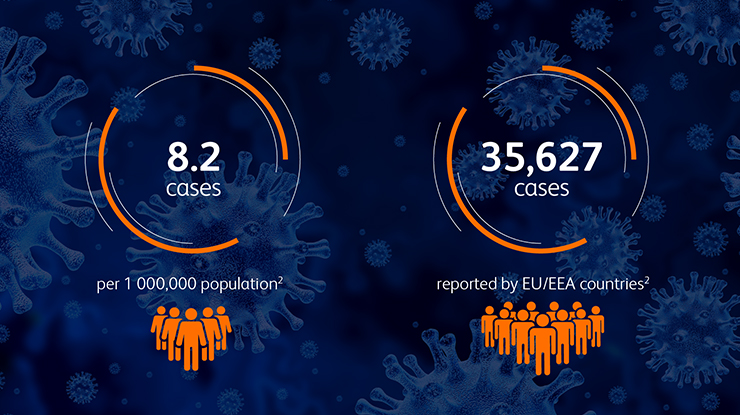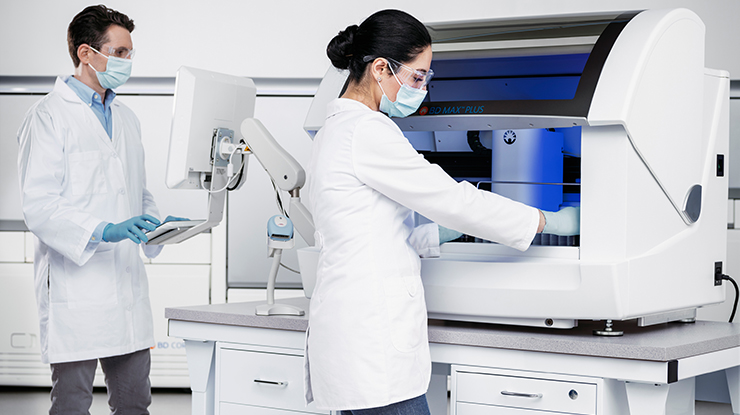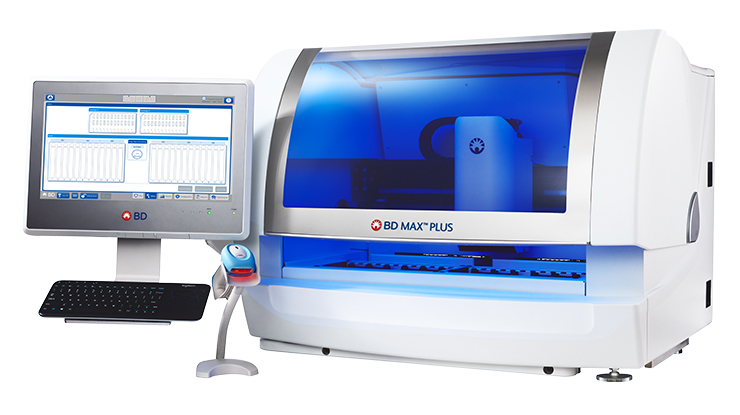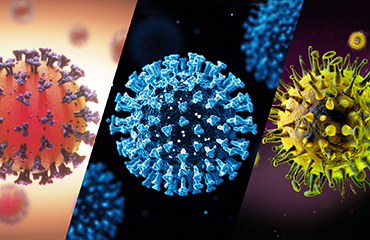Whooping cough: a highly contagious respiratory tract infection
Whooping cough, also known as pertussis, is a highly contagious disease caused by Bordetella pertussis and is optimally prevented with the pertussis vaccine. However, in 2018, 35,627 cases remain reported by 30 European Union/European Economic Area (EU/EEA) countries.1,2
It is usually transmitted by coughing or sneezing, or by close contact with an infected person in a common breathing space.


People with whooping cough are most contagious for about 3 weeks after the cough begins, making timely and accurate diagnosis of this contagious disease imperative.1
Today, whooping cough remains endemic in most areas of the world with the highest incidence in children under 1 year old and a significant mortality rate in this age group.3,4
The main challenge in the appropriate treatment of whooping cough is the existence of two other Bordetella species, Bordetella parapertussis and Bordetella holmesii, which complicate diagnosis by causing a less severe pertussis-like disease.5,6
Diagnosis of whooping cough in adults poses even greater challenges. Atypical clinical characteristics of adult cases compared to the classical child symptoms occur in the paroxysmal stage where adult symptoms are far milder resulting in failure to diagnose: adults experience less violent paroxysmal coughing and inspiratory whooping.7
Delayed diagnosis increases the risk of delayed treatment and can lead to hospitalisation.8 Reliable detection and differentiation are key to help optimise patient outcomes.
Achieve accurate detection and differentiation of B. pertussis, B. parapertussis and B. holmesii
Nucleic acid amplification tests, including PCR and real-time PCR, are key to help ensure a reliable and rapid diagnosis, and in overcoming limitations of culture and serological methods for the diagnosis of Bordetella infections.9
VIASURE Bordetella Real Time PCR Detection Kit for BD MAX™ System* will help your lab to rapidly detect and differentiate between the main three Bordetella species in nasopharyngeal swabs and nasopharyngeal aspirates.

Due to the contagious nature of whooping cough, it is critical that your laboratory provides reliable test results so not to delay appropriate treatment or prophylaxis of contacts. Immediate treatment is particularly important for unvaccinated infants as pertussis might present as a life-threatening disease.9
VIASURE Bordetella Real Time PCR Detection Kit for BD MAX™ System* can help your laboratory contribute to early treatment of whooping cough and slow the spread of disease.
Consolidate your molecular testing to the BD MAX™ System and discover new respiratory assays
BD Respiratory Viral Panel for BD MAX™ System (SARS-CoV-2, Flu A, Flu B, RSV)
Get 4 results from 1 specimen in a single run
VIASURE Pneumocystis jirovecii Real Time PCR Detection Kit for BD MAX™ System
Test for the cause of Pneumocystis pneumonia with the BD MAX™ System
The innovation of the BD MAX™ System offers you a fully integrated, automated real-time PCR benchtop platform with the possibility of running simultaneously its broad menu of molecular in vitro diagnostics (IVDs) and open-system tests.**
- Less than 1.5 minutes hands-on time per sample10,11
- 24 patient results in an average of 2.5 hours11
- 96 samples per 8-hour shift11
Its automated workflow reduces manual tasks to achieve rapid, reliable results and facilitates off-hour testing, helping to offset molecular testing costs.***11,12







